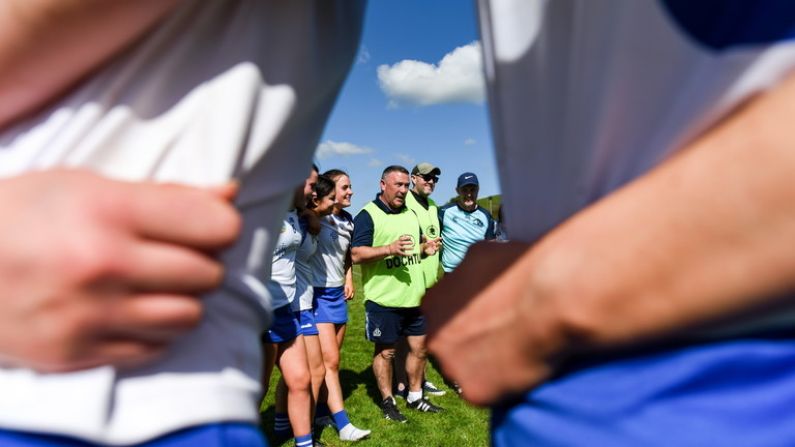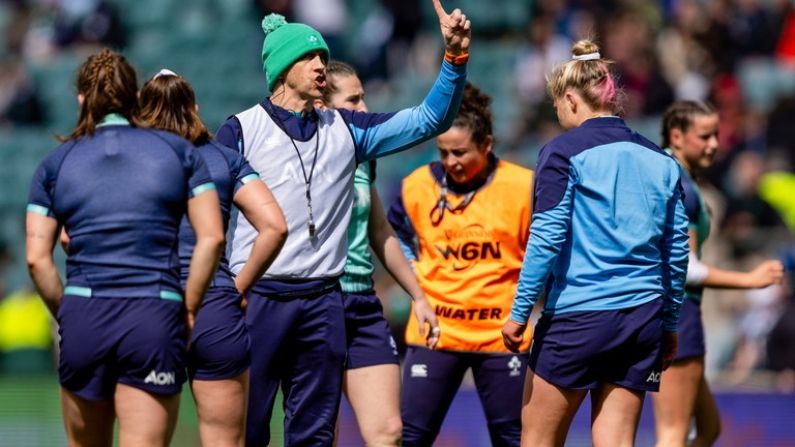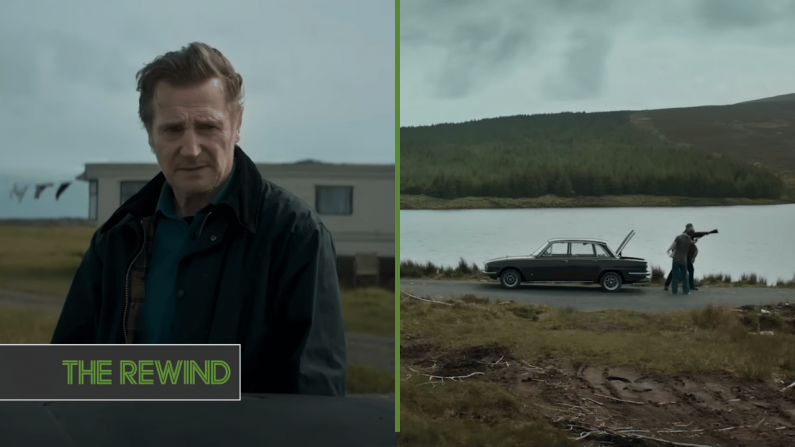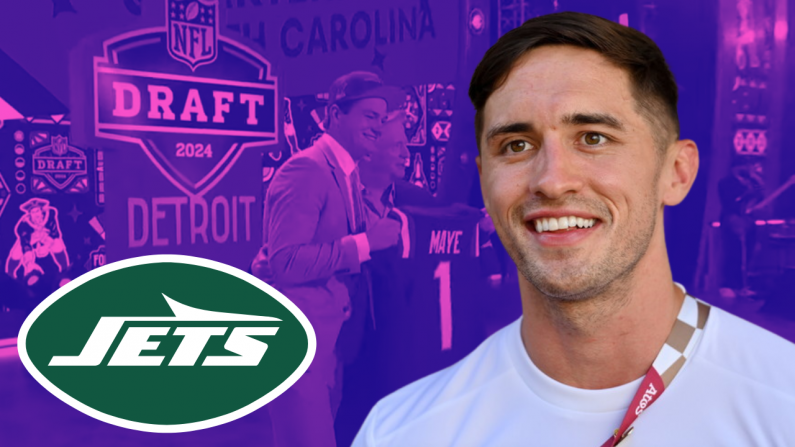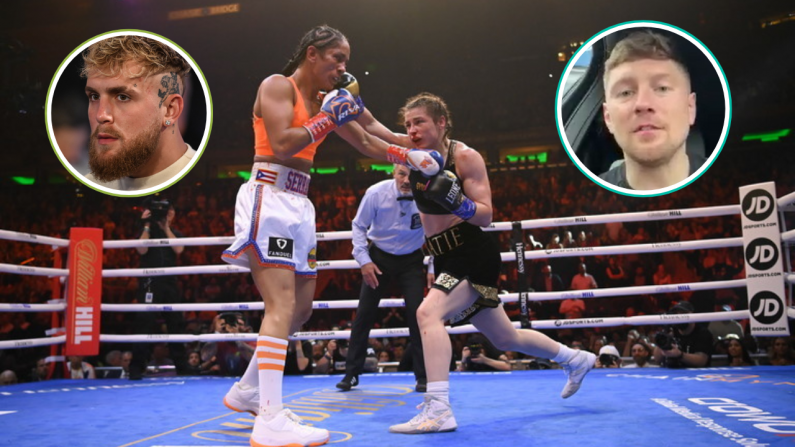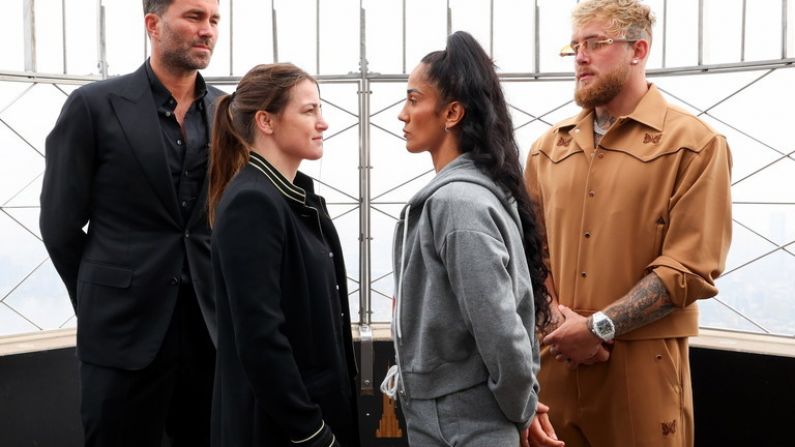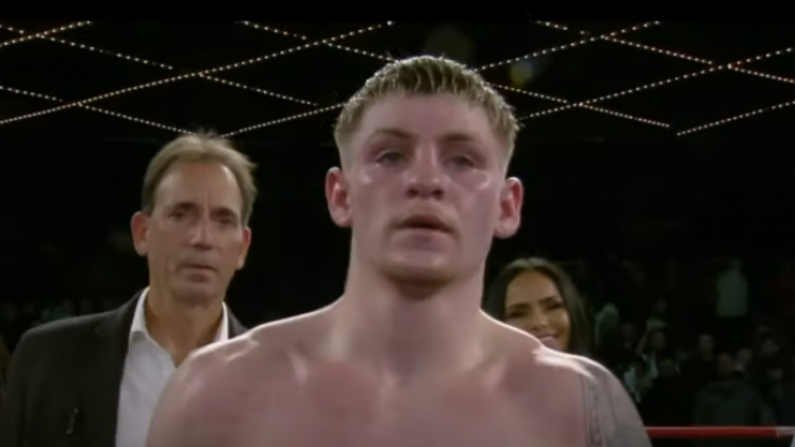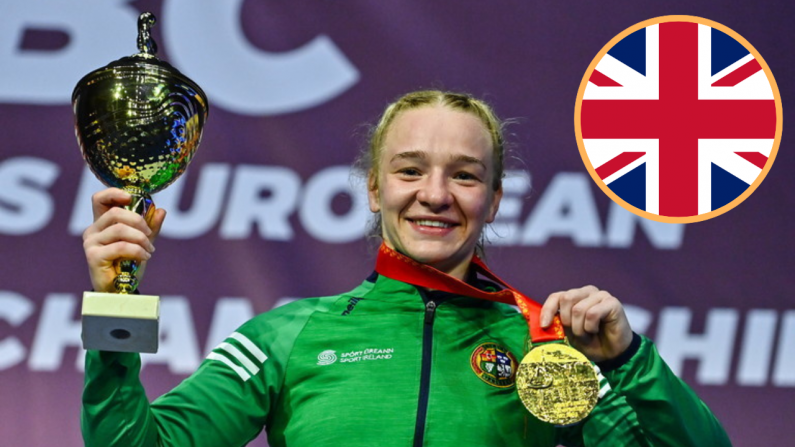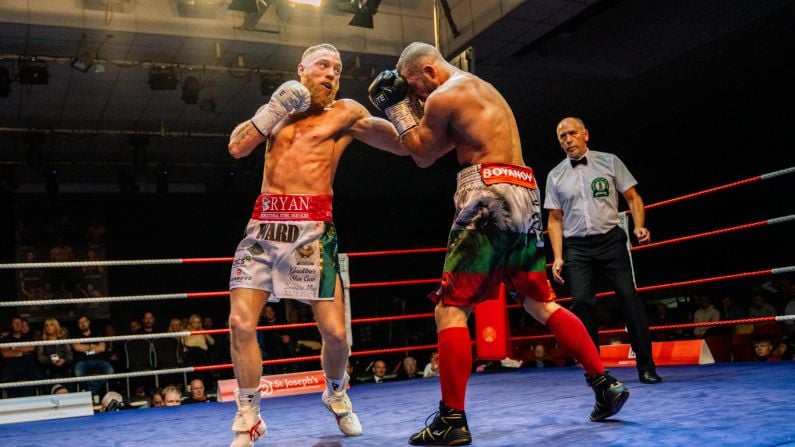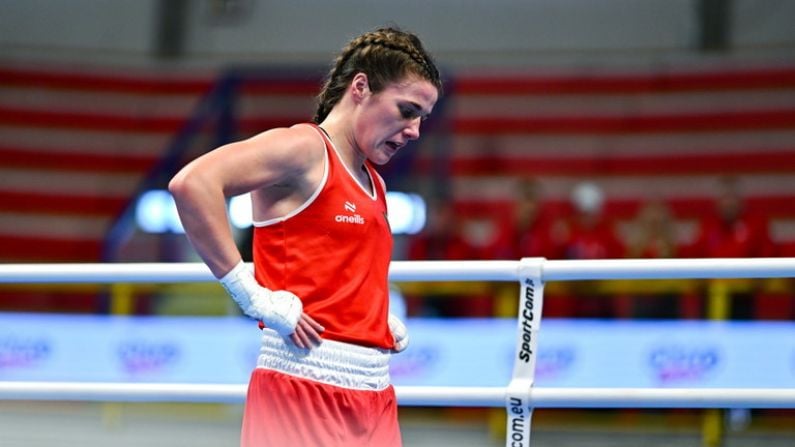There's a moment 10 minutes into Lift Your Heels when we get to see the vulnerable side of Jason Quigley. He's speaking about his mother, and how grateful he is for everything she's done for him.
"In my life, and my career so far, everything has just been 100 miles per hour," Quigley tells Balls.
"You're always chasing the next thing. I never really got too much time to look back on my life, and to see what I went through.
"When I got asked those questions in the documentary, it just really brought up a lot. I was deep into training camp at that stage, I was away from home, and I was missing my family. It really brought up a lot of emotions in me. A few tears did come to my eyes."
The documentary, a Ladbrokes original which airs at 10:30pm, Thursday, March 10th on Virgin Media Two, takes us through the build-up and aftermath of the biggest night of Quigley's career: Last November's middleweight world title shot against Demetrius Andrade.
It features several of those vulnerable moments where Quigley giving an insight to the fears of a fighter. When he was young, the Donegal man suffered from severe anxiety. "I didn't really enjoy a lot of my life when I was younger," he says.
"It was all down to a lot of anxiety, a lot of pressure that I put on myself, that I wanted to achieve so much in my life. I had a lot of dark days when I was younger, a lot of hard times.
"I've had two or three key counsellors in my life throughout my career, and throughout my personal life as well. Back home here in Ireland I did, and when I was in America I had one over there too. They really helped me get to that other side.
"That was something that wasn't very easy for me because when you're a boxer, you're meant to be hard, strong, and nothing bothers you, nothing fazes you.
"I had a very close friend in my life, Gerry Hussey and his wife Miriam who really helped me to open that happiness inside me.
"Sometimes, the more you try to make your life more simple, the easier that it is. In Ireland, you always have to be doing something to be seen as doing well in life. You don't have to be busy 24/7.
"You don't need big fancy houses, big fancy cars, a load of money in your bank - stuff that a lot people look at and think 'Jeez, they must be doing really well for themselves'. Sometimes, it's the cups of tea with someone who has a good attitude, a good personality that can make you laugh; sometimes that more important than any Lamborghini."
"To be honest, I haven't sat down and thought a lot on it..."
So, when does @jay_quigley plan a return to the ring? 🤔
Watch more from Jay here: https://t.co/V3e8o6hDgX
📺 'Lift Your Heels' - Virgin Media Two - Thursday 10:30pm
| In Partnership with https://t.co/un1DzIKaVI pic.twitter.com/sK5EFxCxLj
— Balls.ie (@ballsdotie) March 8, 2022
In the build-up to facing Boo Boo Andrade, Quigley's trainer - the former Irish middleweight world champion Andy Lee - sits on a couch in his fighter's rented Morecambe apartment and says, "What's the worst that can happen? You lose a fight." Thoughts of the horrific, life altering events that could happen in the ring - the fates worse than losing - have crossed Quigley's mind more in the latter years of his career than they did earlier.
Jason Quigley: 'You are putting your life on the line'
"After a few of my fights, whether you break your hand or it's a really hard fight, and you have a few cuts or took some heavy shots to the head, you end up in the hospital," he says.
"My fiancée April has been in the ambulance travelling with me to the hospital a few times. It's just something that I don't want to keep putting her through, I don't want to keep putting my family through.
"I've realised that over the years how dangerous this sport is. It's probably after the fight when you are hurt or feeling a little bit down, and the fight didn't go your way, you sit back and think, 'This is a tough sport'. Or, you are watching a fight, and see somebody get hurt.
"Every time you step through those ropes, you are putting your life on the line. A lot of us boxers don't look at it like that either because if we did, we wouldn't get into the ring as much as we do.
"It's something that I'm passionate about, and something that I love, and when you do get into the ring, you are willing to take these chances."
Around the time that Quigley accepted the Andrade offer, there was also the option of a fight against former WBO light middleweight world champion Jaime Munguia on the table.
"I was offered to fight him, and I was getting a good bit more money to fight him as well," says Quigley.
"There was no title on the line. To me, that's why I started boxing: To become a world champion.
"I had 100 per cent belief in myself that I was going to step in there and become a world champion. Otherwise, I would have taken the Munguia fight for more money.
"That maybe shows people who I am and what I'm all about. I'm in this game to become a world champion."
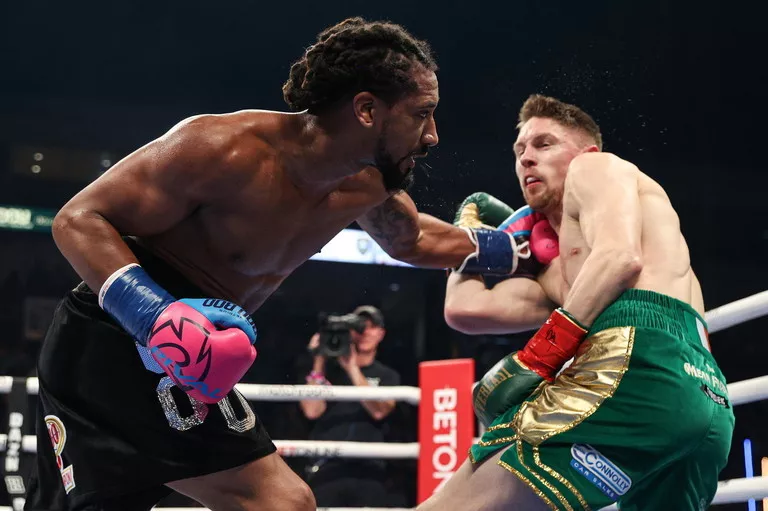
19 November 2021; Demetrius Andrade, left, and Jason Quigley during their WBO World Middleweight Title fight at the SNHU Arena in Manchester, New Hampshire, USA. Photo by Ed Mulholland / Matchroom Boxing via Sportsfile
The bout with Andrade was stopped in the second round when the referee stepped in. The American had broken Quigley's jaw in the opening three minutes.
"I was like, 'Jeez, if I could have just blocked that one shot that broke my jaw, that would have changed the whole fight, maybe'. I wouldn't have had a broken jaw, and there wouldn't have been blood running down my throat," Quigley says.
"If you're in a boat, and you fall out, you're going to hit water. Whenever you're in a boxing ring, you're going to get caught.
"That exact decision of the referee, I do not agree with, but looking back now, knowing that my jaw was broke, I'm happy that the fight was stopped.
"God knows what kind of damage could have been done if I'd gone 10 more rounds with a broken jaw."
Following the fight, Quigley had plates inserted in his jaw to aid the healing. Those were removed three weeks ago. The bone is fully healed, and his surgeon believes it's stronger than it was previously. He has another month of recuperation to go, then he'll start thinking about what's next.
In the documentary, Quigley admits there were times following the fight when he thought about never getting back into the ring again, but also that he couldn't end his career on such a low note.
"It's healthy when you start knowing that it's healthy to have these thoughts," he says.
"If you think that you shouldn't be having these kind of thoughts, that's where these things can get difficult and hard.
"We're human, the thoughts that you have are completely the truth to you because you're feeling them. Nobody can tell you that's right or wrong because it's you going through that.
"For me, early on in my career when I got one or two defeats as an amateur, I got those thoughts and they scared the shit out of me. I was like, 'Do I not want to box again? Why am I thinking like this?'
"Now I'm at the stage where I'm a lot more mature, and I understand that if you're lying in the hospital after a fight - you break your hand, you break your jaw - of course you're going to think, 'Do I really want to do this any more? Is this worth it?' Those are only natural instincts, and natural thoughts."




